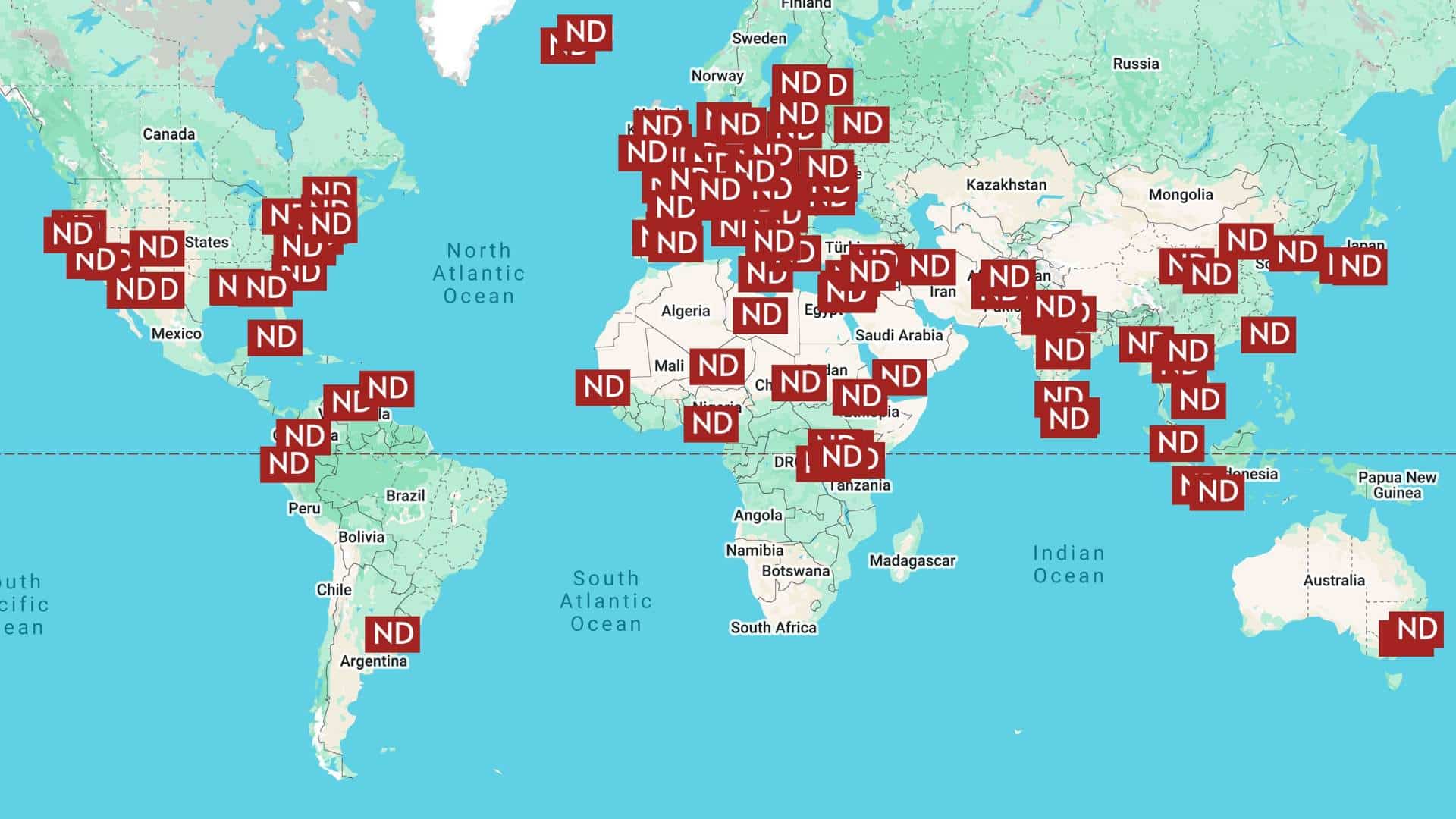In 2024 News Decoder took you to more than 60 countries to show that what happens in in one place can have global resonance. Come explore with us.
An interactive map of some of the stories we published in 2024 that show the geographic range of New Decoder. Curious about any area in particular? Click on the map and we’ll tell you a story.
If you come to News Decoder cold, you might think that we are a news service. We aren’t. We publish news stories, by correspondents who write them exclusively for us and by students who report and write them as part of our educational programs.
But we don’t have newsrooms or bureaus or large staffs of editors. What we have is a curiosity about what is happening around the world and a desire to tell stories that mainstream news organizations think wouldn’t interest most people.
There is a misconception — we think — that most people care only about what happens immediately around them, that most people are too egocentric and xenophobic to care about other people in other countries.
But we work with students across the globe — from California in the United States and Zurich, Switzerland, to Pune, India and Kigali, Rwanda. And these students are eager to explore the world and connect with their counterparts in other countries and on other continents.
They understand that landslides in their part of the world are caused by climate change — a problem that can’t be solved by their municipality alone.
We try to show youth that when the people in one country in one region move from dictatorship to democracy or the other way around, the passions that spurred that change influence people in other countries to cast out their leaders. We want young people to understand how a civil war in one country can cause a massive diaspora of refugees that affect the economics and politics of dozens of other countries.
Connecting stories across borders
This past year, News Decoder published stories centered in 60 different countries across every continent save Antarctica. (Note to reader: If you know of anyone in Antarctica who would like to write for us, or we could interview, or if you are reading this from Antarctica, let us know.)
Our correspondents and students tackled migration, civil war, climate change, economics, racism, politics, food, mental health and even sports. Our stories explained not only what is happening now, but the history that led up to it. To understand the now we have to look at the past and see how we got here.
My daughter has passports from three countries. She was born in Guatemala, grew up in the United States and moved to Ireland where she got Irish citizenship through her dad, who got his through his grandfather. A young family friend has passports from two countries and is eligible from a third — Honduras, where he was born.
When I was at university, it seemed only corporations were multinational. But multinationalism is becoming a thing for young people whose parents come from different places, who were born in places their parents adopted and who make their own homes far from where they were born.
The world has shrunk even as its problems seem to have grown.
We, at News Decoder, embrace the whole planet and the young people in every country who we believe can solve tomorrow’s problems by being informed and connected across borders, whether those borders are lines drawn on a map or lines in the minds of older generations.
Through the stories we publish, we hope to show our young readers that the problems they face in their area are problems shared by other people in other areas and that there are people working to solve these problems in many places.
In 2025 we celebrate our 10th birthday. We hope you will help us celebrate by exploring the world with us. And maybe help us get to Antarctica.
Questions to consider:
- How can a news story cross borders?
- What does it mean to be multinational?
- What countries would you like to know more about?

Marcy Burstiner is the educational news director for News Decoder. She is a graduate of the Columbia Journalism School and professor emeritus of journalism and mass communication at the California Polytechnic University, Humboldt in California. She is the author of the book Investigative Reporting: From premise to publication.


